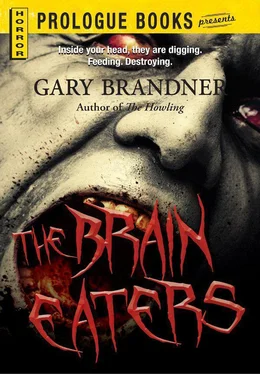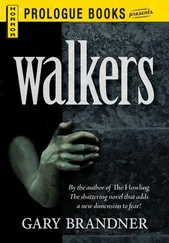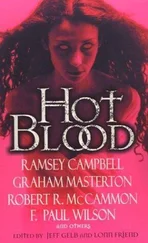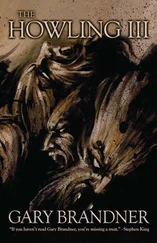“Remember — no story, and this comes out of your salary.”
“You got a deal,” Corey said.
I like New York in June.
I’ll take Manhattan.
A helluva town.
Snatches of song lyrics danced through Corey Macklin’s head during the bus ride from JFK through Queens, across the Triborough Bridge to Manhattan and the West Side Terminal. Maybe Los Angeles had the sunshine, San Francisco the culture, New Orleans the food, Chicago the broad shoulders — but New York was the place to be; no doubt about it. The air was brisk and charged with excitement. Everybody seemed to be on his way to some vital appointment. Never mind the junkies and the whores and the muggers and the pimps. New York was It. The Big Apple. The place to be if you were anybody.
The red-eye flight in a cramped coach seat had left Corey with aching joints and a foul taste in his mouth, but the electric atmosphere of New York had quickly revived him. He belonged there. If things worked out, he would soon be there for good.
Corey’s mood took a nosedive when, after a wait of forty-five minutes, he was allowed into the cramped office of an assistant to the medical examiner named Fado. The man had a mouth with the corners permanently turned down. He looked at Corey as though he needed a bath.
“You say you’re from Minneapolis?” he said.
“Milwaukee,” Corey told him. “The Milwaukee Herald .”
“Good for you. And you wanted what?”
“I’d like to see the body of DuBois Williamson.”
“Have you got any idea the number of bodies we process through here?”
“No.”
“I didn’t think so. Well, I’m up to my ass in dead bodies, and you expect me to dig through them and find some coked-up jigaboo who was brought in here when?”
“Last Friday.”
“Last Friday. Sure. Wonderful. Our busiest day.”
“Look, it shouldn’t be all that tough.”
“Not in Minneapolis, maybe, but you’re in the Apple now, pal.”
“Would you mind checking?”
Fado gave him a long-suffering sigh and walked to a bank of battered file cabinets along one wall. After a five-minute search he pulled out a folder, shuffled through the sheaf of onionskin forms inside, pulled out one, and scanned the information. He took care to prevent Corey from reading over his shoulder.
“Williamson, DuBois Harrington,” he read.
“That’ll be him,” Corey said.
“Gone.”
“What do you mean, gone?”
“I mean Williamson, Dubois Harrington, has checked out. The body was signed for and removed yesterday.”
“Who removed it?”
“That’s confidential.”
“Come on, mister. I’m with the press.”
“In this town your Minneapolis Trombone , or whatever your sheet is, don’t carry a lot of weight, pal.”
“All right, what about the cause of death? Is that confidential, too?”
“Don’t you read the papers?”
“I’m from out of town. Humor me.”
Fado let a breath hiss out through his teeth. He read from the sheet in a rapid monotone. “Multiple fractures of the spine, pelvis, and ribs; massive damage to internal organs, including liver, spleen, kidneys, and heart. All injuries attributable to the deceased being run over by a panel truck loaded with heavy machine parts.” He looked up at Corey. “Okay?”
“Does it say anything about the condition of his face?”
“What difference does it make? The guy was squashed like a busted balloon.” Fado jammed the folder back into the file cabinet and slammed the drawer shut.
Corey ground his teeth but said nothing more. No use getting on the wrong side of the authorities, no matter how pigheaded they were.
• • •
He had a Danish and coffee in a hole-in-the-wall deli and was calmed down somewhat by the time he found a cab for the ride to Brooklyn. He rechecked his notes as the taxi crossed Newton Creek into Greenpoint, and some of his excitement returned. There were answers waiting for him in the house where DuBois Williamson had lived. He could feel it.
After several wrong turns and rereadings of a crumpled map, the Puerto Rican driver pulled up in front of one of a row of identical, narrow three-story houses. The street was freshly swept and had budding trees spaced along the curb in iron cages.
Corey paid the fare and under-tipped the driver, ignoring the long, hard look he got from the man. He crossed the sidewalk and climbed the stoop to the front door. The doorbell was the old-fashioned kind you turned with a key. He cranked it and waited. The possibility of failure chilled him for a moment. What if nobody was there and the place had been cleaned out like Stransky’s in Milwaukee? He would have to go back empty, and it would be a cold day before he talked Porter Uhlander out of another plane ticket. Then the door opened, and his doubts vanished.
A short, very dark woman with generous breasts and hips stood there looking up at him. Her modified natural hairstyle was shot through, not unattractively, with gray. She wore a nylon dress of dark blue with a flower figure in a lighter shade.
“Mrs. Williamson?” Corey said. Looking over the woman’s head, he could see two suitcases standing in the hallway.
“That’s right. You from the agency?”
“Uh, no. My name is Corey Macklin. I’m a reporter. Can I talk to you?”
Ruby Williamson looked doubtful. “I’m expecting somebody.”
“I won’t take much of your time.”
“Who is it, Momma?” a strong young voice called from inside the house.
“Reporter,” she said, turning from the doorway but keeping her eyes on Corey.
A young black man with cropped hair and a neat moustache appeared behind Ruby Williamson. He frowned at Corey.
“Reporter, you say?”
“That’s right.”
“What paper you with?”
Corey dug for his press card. “The Milwaukee Herald . I — ”
“Milwaukee?” The young man pronounced the name of the city as though it were in some distant galaxy. “What you doing out here?”
“This my son, Anthony,” said Mrs. Williamson.
“Glad to meet you,” Corey said. He stuck out a hand. The young man ignored it. Corey flashed his press card. “I’m working on a story in Milwaukee that may have some connection to what happened to Mr. Williamson. I’d really appreciate a few minutes of your time.”
“You want to talk to him, Momma?” Anthony said.
“Don’t make no difference to me,” said the woman. “Might as well.”
“Come on in, then,” Anthony said without warmth. “Can’t talk but a few minutes. We’re about to leave.”
“So I see,” Corey said, glancing at the suitcases. He waited for some explanation, but when none was forthcoming, he followed mother and son into the neat little living room.
The furniture seemed oddly delicate for the sturdy old house. An exception was a well-worn recliner that was positioned to face the television set. When Ruby and Anthony Williamson pointedly avoided sitting in it, Corey carefully did the same.
“First let me say I’m sorry about what happened to Mr. Williamson.”
“Are you?” said the young man. “Why?”
“Don’t be dispolite, Anthony,” Mrs. Williamson scolded. Then she said to Corey, “Anthony’s in the navy,” as though that fact would explain the lapse in manners.
“Home on leave?” Corey said, trying to make it friendly.
“Emergency leave.” Anthony’s deep maroon eyes held steady on Corey’s face. “Death in the family.”
Corey nodded, feeling a little foolish. He said, “I wonder, Mrs. Williamson, if you could just tell me about your husband. How he was before the … accident. Was there anything different about his behavior? Anything strange?”
Читать дальше












